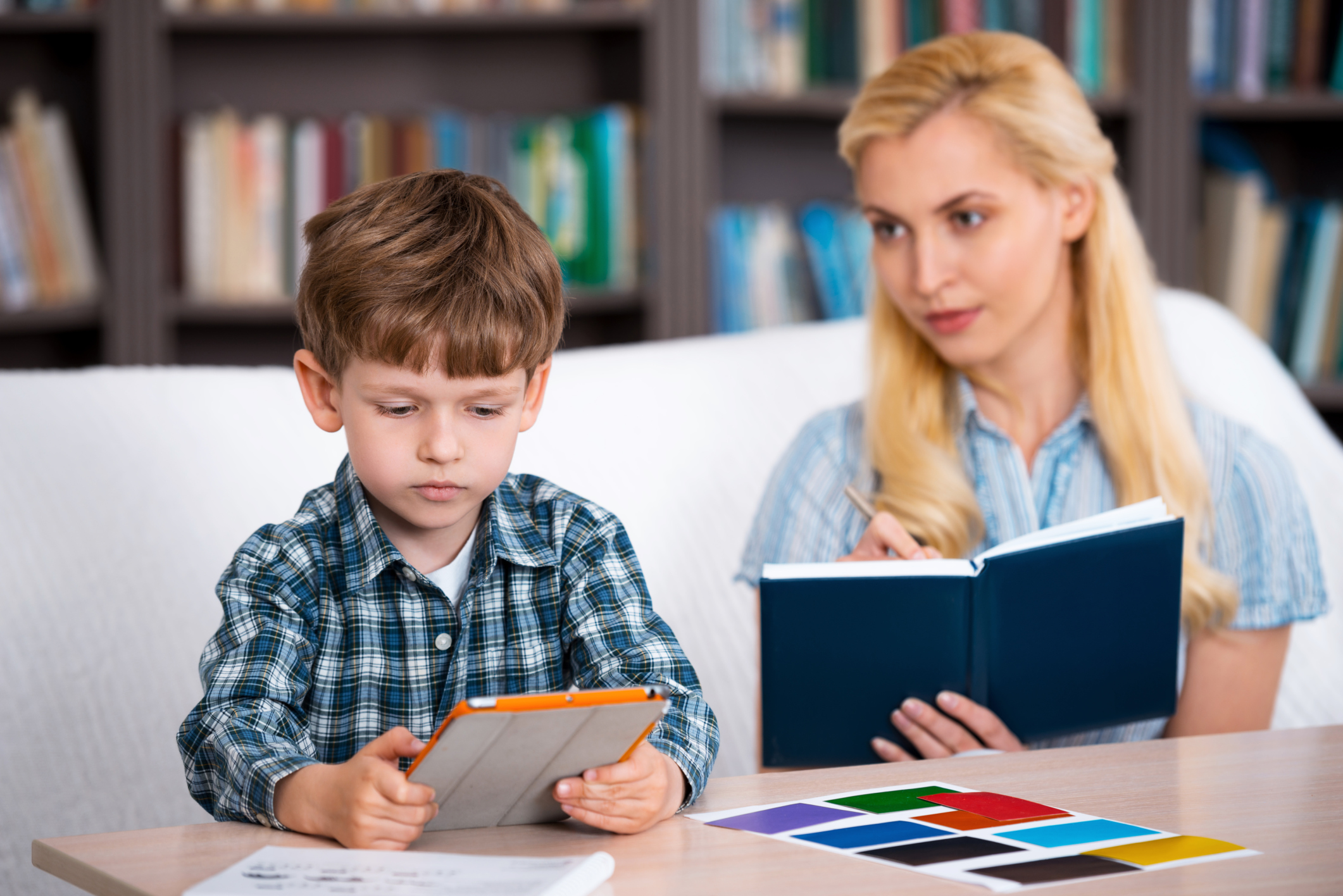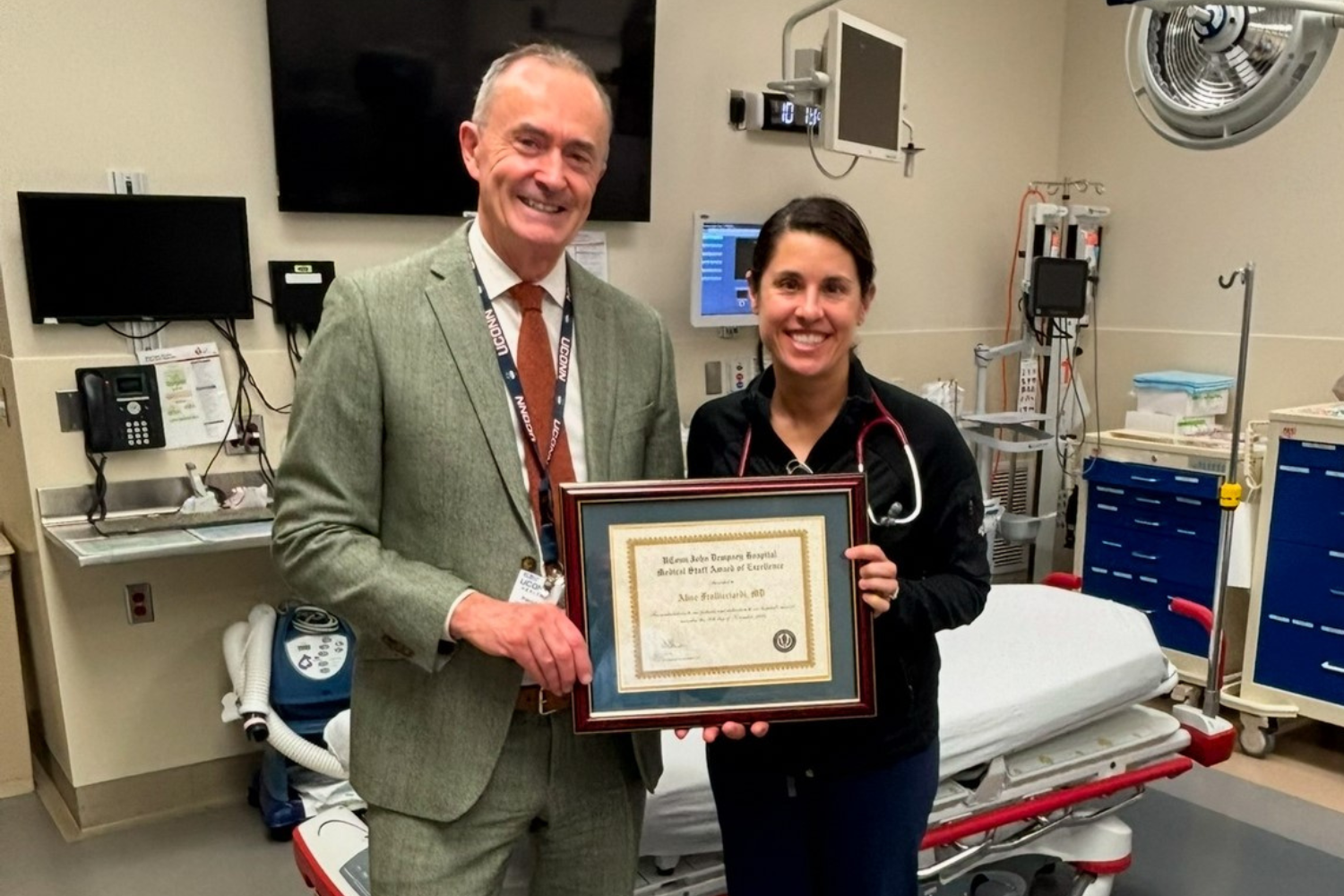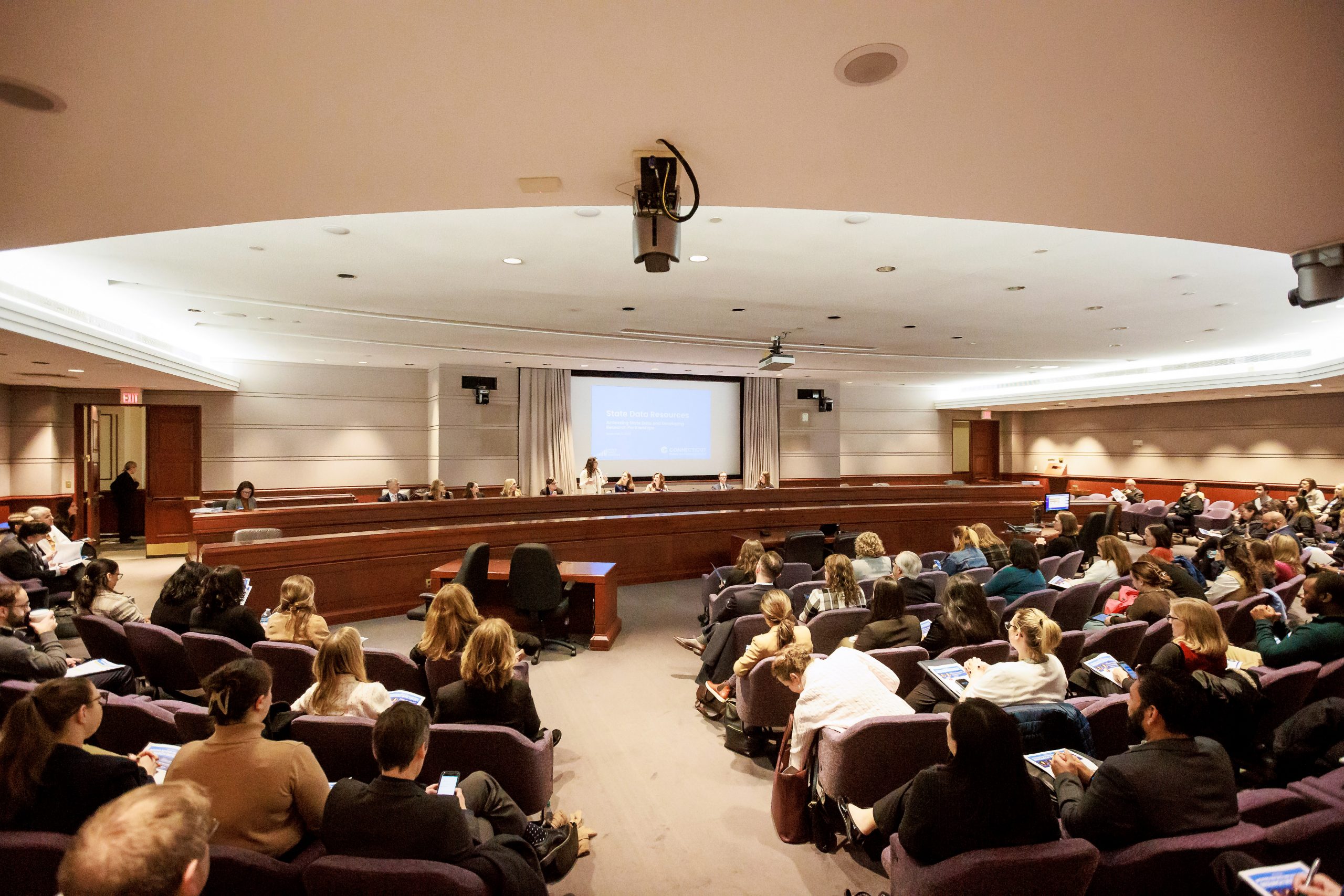
Neag School of Education faculty member Devin Kearns has received an $650,000 grant from the Institute of Education Services (IES), as part of a larger $1.6 million grant with other colleagues, to develop a middle school co-teaching program to encourage collaboration between content-area and special education teachers and to improve the reading skills and content-area knowledge of students with learning disabilities.
“This project is exciting because co-teaching is very popular, but there are few programs designed specifically to help educators improve the effectiveness of co-teaching,” says Kearns, an assistant professor of special education. “Many districts are implementing co-teaching models, but very few districts have provided their teachers with sufficient professional development and ongoing support to make sure co-teaching works well.”
Current research indicates that many co-teachers feel confused about their roles and responsibilities, and so do not provide the level of reading support that students with disabilities need. At the same time, the level of literacy necessary for postsecondary education and employment has increased dramatically over the past 20 years.
“For their long-term success, students with disabilities need reading support in every class. But they just aren’t getting it,” says Kearns. “This research project is focused on middle-schoolers to help them prepare for high school reading demands. High school teachers often assume students are ready to read their textbooks, but they aren’t. Even students with typical achievement struggle with textbook reading.”
The three-year project, funded by the IES – the research arm of the U.S. Department of Education – will take place in middle schools located in Griswold, Conn., and Worcester, Mass. Kearns and Vanderbilt University assistant professor Christopher J. Lemons are co-principal investigators with the University of Maryland, College Park assistant professor Jade Wexler. Wexler is the lead investigator.
“If co-teachers learn a way to improve reading and content-area skills that will fit into their busy days, student with disabilities – and their peers – will leave middle schools with the reading skills they’ll need to succeed in high school and beyond.”
—Assistant Professor Devin Kearns
The researchers will work with 22 co-teaching pairs – one special education teacher and one content-area teacher – and 264 of their eighth-grade students. The main product of the project will be a fully developed program to help middle school co-teachers provide better content-area reading support for students with, and at risk for, disabilities.
The researchers are trying to create a program focused on developing teacher skills and that will result in student achievement. “There aren’t a lot of data showing the relationship between teacher professional development and student achievement,” Kearns says. “One important goal is that this system of helping teachers develop their skills will result in real outcomes for students.”
Part of the researchers’ focus is to create a program that school districts and teachers can implement without investing a lot of time and money. “We going to try and minimize the amount of support that’s required for teachers to do this well,” Kearns says. “One tricky thing about new programs is that schools get lots of support at the beginning from the developer. And then that goes away, and the program falls apart. We’re designing this so that doesn’t happen.
“Jade, Chris, and I were all teachers, and we understand what schools are like. We want our program to be manageable. We want teachers to be able to learn what to do and start doing it quickly and easily.” Kearns adds. “We know it won’t work if it takes too much time or is too complicated.”
In the end, he says, “If co-teachers learn a way to improve reading and content-area skills that will fit into their busy days, student with disabilities – and their peers – will leave middle schools with the reading skills they’ll need to succeed in high school and beyond. We’re excited to get started.”
The project begins this fall.
2014 IES Research Grant Updates
Last year, IES awarded three of its 48 research grants to faculty in the Neag School. Now embarking on a second year of funding, each research team offers Spotlight an update on the current status of their respective projects:
NEEDs2 – Behavioral Screening Practices in Schools
Having recently completed its first funding year, the National Exploration of Emotional/Behavioral Detection in School Screening (NEEDs2) is a project – led by principal investigator Sandra Chafouleas, associate dean for research in the Neag School – that aims to understand whether and how schools are screening students for support they may need socially, emotionally, and behaviorally, as well as what factors may influence the use of such screeenings.
Ultimately, this work is intended to assist school personnel, policymakers, parents, and community stakeholders in making decisions about the delivery of social, emotional, and behavioral services in schools.
Following an in-depth analysis over the past year of Department of Education documents related to this topic, Chafouleas and fellow researchers will spend the coming year closely examining the resulting data to uncover any trends that may emerge in how social, emotional, and behavioral services are delivered in schools nationwide.
Future work will involve surveying school administrators, teachers, parents, and others across the nation regarding their current practices in assessing students’ social, emotional, and behavioral well-being – as well as their perceptions of these practices.
For more information about this project, visit needs2.education.uconn.edu.
Project WELLS
Project WELLs is designed to investigate writing instruction and outcomes for 4th-grade Latino students, including those currently classified as English language learners (ELLs), those formerly classified as ELLs, and those never classified as ELLs. Elizabeth Howard, associate professor of bilingual education in the Neag School, is co-principal investigator. Year 1 activities focused on the development of measures, including a writing instruction quality observation protocol (WIQ-OP), two measures of writing quality, a parent questionnaire, and a teacher survey. Activities in the project’s second year will focus on data collection in approximately 25 classrooms in a single school district.
Project IVC
The goal of Project IVC (Integrating Vocabulary and Comprehension Intervention) is to develop and evaluate a technology-enhanced intervention to support the reading comprehension success of 3rd grade students at risk for reading difficulties and disabilities. Neag researchers are developing an individualized computer-based platform for teach students critical vocabulary that will allow them to engage with and comprehend complex texts and to meet rigorous national reading standards.



